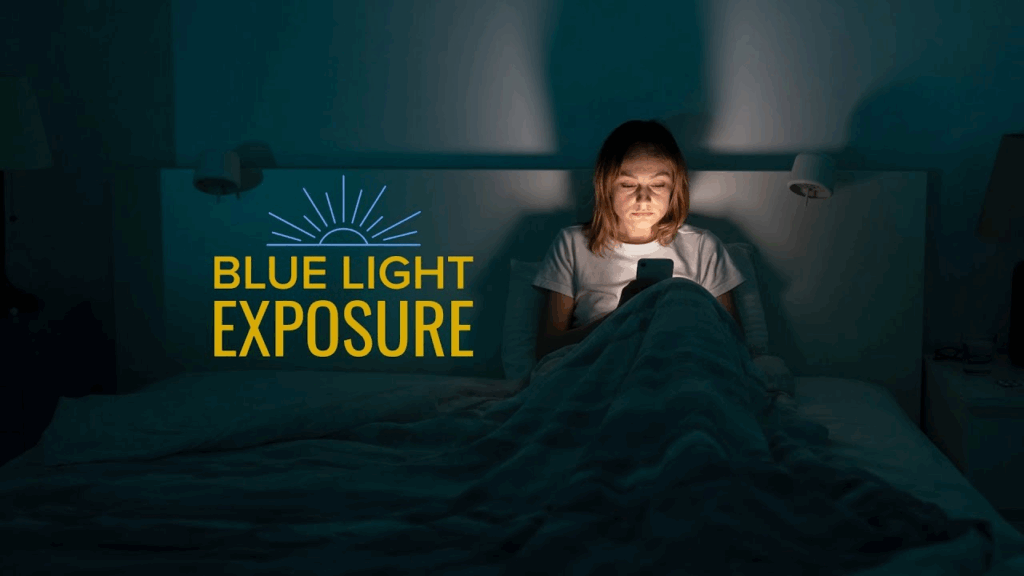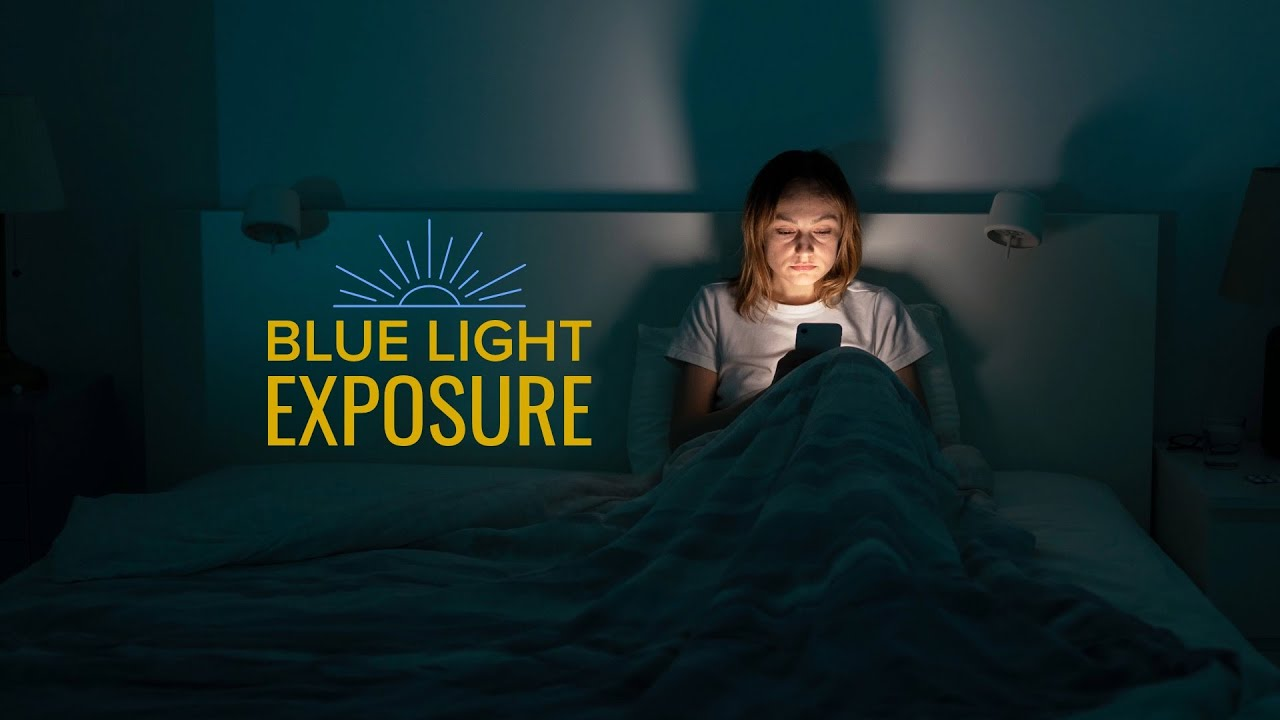
Sleep is essential for health, yet millions of people struggle with poor sleep quality. One overlooked factor behind restless nights is blue light exposure from digital devices. From smartphones and tablets to laptops and TVs, these screens emit a wavelength of light that can disrupt our natural sleep cycle. Understanding how blue light affects the body—and how to reduce its impact—can help restore restful nights.
What Is Blue Light?
Blue light is a high-energy visible (HEV) light with a short wavelength (between 400–490 nanometers). It occurs naturally in sunlight and plays a key role in regulating the body’s circadian rhythm, also known as the sleep-wake cycle.
However, artificial blue light from screens, especially during evening hours, confuses the brain into thinking it’s still daytime. This delays the production of melatonin, the hormone that signals it’s time to sleep.
How Blue Light Affects Sleep
- Delays Sleep Onset
Exposure to blue light before bed suppresses melatonin release, making it harder to fall asleep. - Reduces Sleep Quality
Even if you manage to sleep, studies show that blue light can cause more fragmented and shallow rest. - Disrupts Circadian Rhythm
Nighttime exposure shifts your body clock, leading to irregular sleep patterns and morning grogginess. - Increases Risk of Insomnia
Prolonged use of devices late at night increases the chances of chronic sleep problems.
Common Sources of Blue Light
- Smartphones and tablets
- Laptops and desktop monitors
- Televisions
- LED and fluorescent lighting
- E-readers without warm-light filters
Fixing the Problem: Practical Solutions
1. Limit Screen Time Before Bed
Avoid screens at least 1–2 hours before bedtime. Replace scrolling with reading a book, journaling, or light stretching.
2. Use Blue Light Filters
Most devices now offer night shift or blue light filter modes, which reduce HEV light emission.
3. Invest in Blue Light Glasses
These special lenses block or filter harmful blue light, especially useful for those working late.
4. Adjust Lighting at Home
Switch to warm, dim lighting in the evening to signal your body that it’s winding down.
5. Create a Sleep-Friendly Bedroom
Keep the room dark, quiet, and cool. If needed, use blackout curtains or a sleep mask to avoid light exposure.
6. Stick to a Consistent Sleep Schedule
Going to bed and waking up at the same time every day helps realign your circadian rhythm.
Table: Blue Light’s Impact vs. Healthy Sleep Habits
| Factor | Impact of Blue Light | Healthy Alternative |
|---|---|---|
| Melatonin levels | Suppressed at night | Allow natural rise with no screen use |
| Sleep onset | Delayed by 30–60 minutes | Avoid screens 1–2 hours before bed |
| Sleep quality | Fragmented and shallow | Deep, restorative sleep in darkness |
| Circadian rhythm | Shifted and irregular | Stable cycle with consistent schedule |
| Daytime energy | Morning grogginess, fatigue | More alert and refreshed mornings |
Benefits of Reducing Blue Light Exposure
- Faster sleep onset
- Better sleep depth and duration
- Improved focus and mood during the day
- Lower risk of chronic sleep issues
- Balanced circadian rhythm
Overview Table
| Fix | Action to Take | Benefit |
|---|---|---|
| Limit screen time | No devices 1–2 hours before bed | Faster and easier sleep onset |
| Use device filters | Night mode or blue light filter | Reduced melatonin suppression |
| Wear blue light glasses | Block harmful wavelengths | Protects eyes and supports sleep |
| Adjust home lighting | Warm, dim lights in the evening | Signals body it’s nighttime |
| Create sleep-friendly space | Dark, quiet, cool bedroom | Improves quality and depth of sleep |
| Consistent routine | Same sleep and wake times | Strengthens circadian rhythm |
Final Thoughts
Blue light is not inherently bad—it helps us stay alert and energized during the day. The problem arises when we’re overexposed at night. By reducing screen time, using filters, and creating a calming bedtime environment, you can minimize its effects and enjoy healthier, deeper sleep. A few small adjustments can lead to big improvements in your rest, energy, and overall well-being.
3 Quick FAQs
Q1. Can blue light actually cause insomnia?
Yes, prolonged nighttime exposure suppresses melatonin and can lead to insomnia over time.
Q2. Do blue light glasses really work?
They help filter harmful wavelengths, especially useful for evening screen use.
Q3. How soon will I notice better sleep after reducing blue light?
Most people see improvements in sleep quality within a week of consistent changes.

